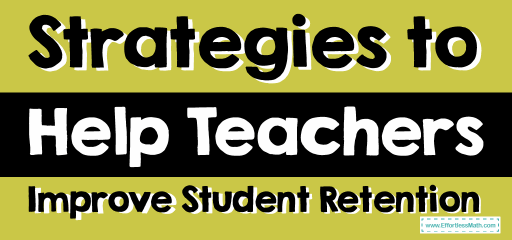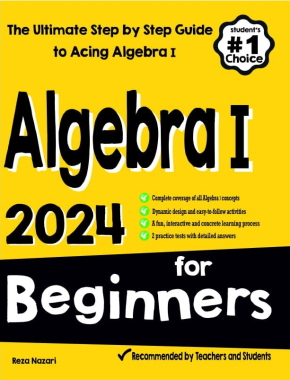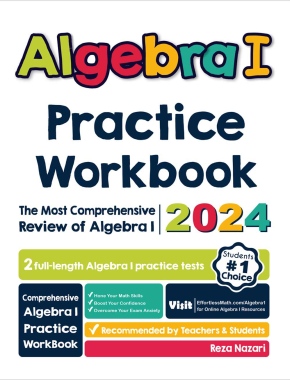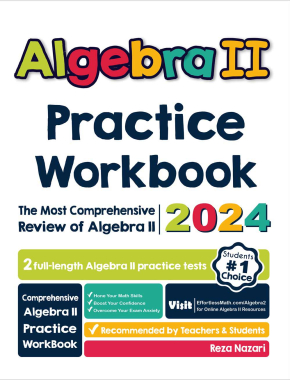Strategies to Help Teachers Improve Student Retention

The teaching profession is one career path that notoriously requires its professionals to wear multiple hats. As an educator, you are not only responsible for ensuring that the learning materials are sufficiently taught, but also that they are sufficiently learned. Teachers at every level face challenges regarding student retention and finding ways to feel confident that the lessons they are presenting are being properly absorbed, and not simply memorized for grading and testing purposes.
With such a large range of student age groups, skill levels, and curriculum requirements based on off-grade level, finding strategies that can universally benefit a student regardless of if they are in second grade, or a junior in college means that educators have a higher likelihood that their students will be able to take their lessons with them as they progress in their education.
Becoming an Educator
There is a reason that the teaching profession has so many requirements for those who decide on a career in this industry, becoming a dedicated student on your path to becoming an educator means that you are developing the soft skills yourself that you will need to extend to your own students once you move from student to teacher. The financial responsibilities that accompany becoming an educator will also lend themselves to you being able to make an impact on your future students.
The subject of paying for college was once considered taboo but as times move forward more and more adults are talking money with the younger generation and as a result kids are learning about the relationship between work, money, and goals at a younger age. Many students are not introduced to the concept of a student loan until they are faced with the need for one, and sometimes the pressure of a timeline can be a detriment to the overall understanding of the process. Often the federal funding is presented as the main and only option leaving students unaware that they can also take out a student loan from a private lender to pay for college which comes with its own unique experience and terms.
Make a Great First Impression
For many educators, their role is fixed, while their students will vary annually. As a result, teachers at every level must be comfortable having to make a great first impression at the start of each new school year. Although this may present as daunting it is actually a great opportunity for you to cultivate your own reputation and show your students who you are and what you represent as a teacher. Being able to set that expectation immediately leaves little room for interpretation throughout the school year.
When students, and their parents, feel that you as a teacher are dedicated to successful learning it is just easier to win them over. Making a great first impression sets everyone involved up to be able to have important and sometimes difficult discussions with the underlying tone of support and learning. In the classroom, this impression lends itself to retention via the rapport you have established. Students have a higher likelihood of intentionally listening to teachers that they enjoy and will absorb the lessons on a deeper level.
The Absolute Best Book for the Algebra I
Provide Evidence
The challenge of authority is something that educators must deal with daily, coming up with creative ways to assert your position but remain approachable can be difficult. People are always more likely to perform a requested duty when they understand why they are being asked to. Providing your students with an answer to that question, before it is even asked, is a good way to avoid being challenged by them and to garner your intended results. For example, some areas of study, like math are homework-heavy, because the material needs consistent practice to be learned and retained. Letting your students know that these assignments have a purpose and are not simply busy work gives them a chance to hear from you what your goals for them are and why doing math homework is important for their education and the development of healthy habits.
Be a Close Monitor
It can be difficult to create a personalized experience for each student when teachers are responsible for juggling so many within one classroom. However, develop your own style of how to be a successful teacher, you will see your hard work paying off in the retention level of your students. Paying attention to each student as if they were your only shows them that their success is important to you and that should they begin to develop bad habits, you are monitoring them close enough to recognize them before they become a lasting problem.
Providing students and parents with recognition of both positive progress as well as areas of concern creates to flow of conversation that is not intimidating. By closely monitoring and discussing your students’ progress you are actively decreasing the chances of information like behavioral issues, slipping grades, or incomplete coursework from feeling like they came out of nowhere when they need to be addressed. Positive feedback is the steady motivation for students to keep up their healthy habits regarding their student style and classroom behavior.
Balance Access with Boundaries
As an educator, you do not have a traditional timetable for your day, and finding a balance between being available while also enforcing boundaries can be difficult, especially when you are dealing with large groups of people whose questions and concerns are also not on a specific timetable. Your students will be able to retain your lessons better if they have access to your help when they need it. Being clear about off-hours assistance, office hours for in-person help, and setting expectations regarding response times upfront will also teach lessons like patience, organization, and self-reliance.
Set and Support Goals
One of the most common ways to ensure that your students understand your expectations is a syllabus. Giving your students an overview of your goals for them, and how you plan to help them reach these goals from day one acts as a roadmap for their curriculum. Materials like a syllabus also hold students accountable for monitoring their own retention. Being able to see in black and white what they will be expected to know and when they will be expected to know will also encourage them to seek your support if they are nearing a benchmark and feel underprepared.
The Absolute Best Book for the Algebra Test
Related to This Article
More math articles
- Embark on Your Mathematical Odyssey: “PERT Math for Beginners” Companion Guide
- Divide and Conquer: How to Tackle Word Problems with Division Facts up to Twelve
- How to Perform Operations of Decimals: Word Problems
- How to Use Box Multiplication Method
- 8th Grade Wisconsin Forward Math Worksheets: FREE & Printable
- How to Simplify Fractions? (+FREE Worksheet!)
- AFOQT Math Formulas
- Math Mastery: Effortless Math Learning
- The Ultimate 6th Grade PEAKS Math Course (+FREE Worksheets)
- 5th Grade MEAP Math FREE Sample Practice Questions






What people say about "Strategies to Help Teachers Improve Student Retention - Effortless Math: We Help Students Learn to LOVE Mathematics"?
No one replied yet.